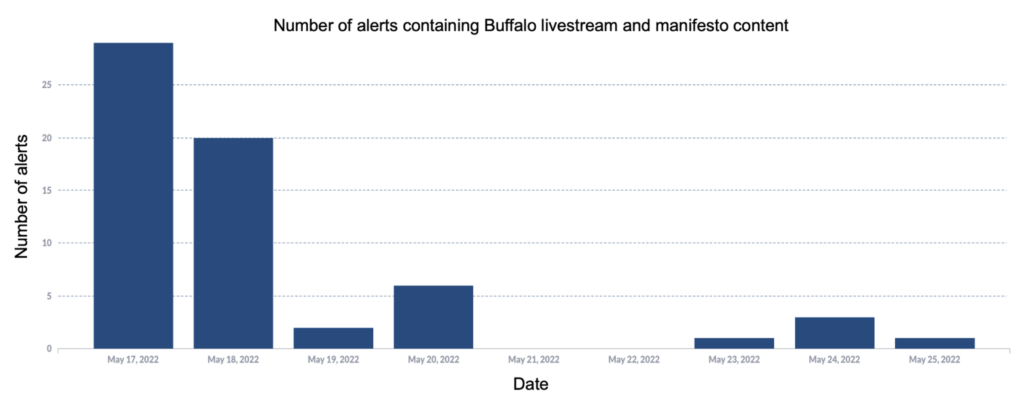Reader's Digest – 23 April 2021
Our weekly review of articles on terrorist and violent extremist use of the internet, counterterrorism, digital rights, and tech policy.
Webinar Alert
- We have opened registration for our upcoming webinar, “Countering Terrorist Use of Emerging Technologies: Assessing Risks of Terrorist Use of End-to-End-Encryption and Related Mitigation Strategies”, which will be held on 29 April 2021 5pm - 6pm BST. This webinar features as a part of our TAT & GIFCT E-Learning Webinar Series. Please register here.
Agenda- Konstantinos Komaitis, Senior Director, Policy Development & Strategy, The Internet Society
- Gail Kent, Head of Messenger Policy, Facebook
- Marc Loebekken, Legal Counsel, ProtonMail
- Erin Saltman, Director of Programming, GIFCT
- Moderator: Maygane Janin, Senior Research Analyst, Tech Against Terrorism
Tech Against Terrorism Updates
- Our director, Adam Hadley, presented at the OSCE wide counter-terrorism conference organised by the Swedish chairpersonship, where he presented on Tech Against Terrorism’s work, including the Terrorist Content Analytics Platform (TCAP) and the Knowledge Sharing Platform (KSP).
- Our senior research analyst, Maygane Janin, discussed content moderation, alternatives to content removal, and transparency reporting with Heidi News. She underlined tech sector efforts’ at providing more contextual information to transparency reports, whilst underpinning that smaller platforms cannot be held to the same expectations due to a lack of resources. In doing so, she stressed the importance of increased tech sector transparency that accounts for proportionality and for the diversity of moderation policies. (Article in French).
- We are excited to announce that an updated version of the Knowledge Sharing Platform (KSP) will be re-launched to tech platforms soon. The KSP is a collection of interactive tools and resources designed to support the operational needs of smaller tech platforms. It is a “one stop shop” for companies to access practical resources to support their counterterrorism and transparency efforts. Stay tuned for announcements about the launch!
Terrorist Content Analytics Platform (TCAP) Updates
- We have updated the TCAP FAQ page, in which you can now find more information on our content verification policy and TCAP access.
- Last week, (12.04-18.04) the TCAP identified and verified 432 URLs containing terrorist content, sent 244 alerts to 23 tech companies, and 86% of this content is now offline.
Top Stories
- The UK Home Secretary Priti Patel has announced the government’s intention to proscribe the violent extremist group Atomwaffen Division and its alias National Socialist Order. Both of these groups are already designated by the government of Canada.
For a full overview of countries’ and supranational institutions’ designation of far-right terrorist groups, please see the TCAP inclusion policy.
- Hope Not Hate has welcomed the proposed proscription of Atomwaffen, additionally arguing that the UK government has yet to proscribe the Order of Nine Angles.
- The European Commission has proposed the first European legal framework for regulating Artificial Intelligence (AI) in Europe.
Access Now has responded to the EU Commission’s proposed legislation on artificial intelligence and cautioned that the legislation falls short of ensuring human rights are upheld.
Tech Policy
- This week we are listening to Lawfare’s podcast on the challenges of moderating audio content with Sean Li, the previous head of Trust and Safety at Discord.
Counterterrorism
- Swiss anti-terror law: more police powers for more security? This article, by Katy Romy, discusses the debate around Switzerland’s new proposed anti-terrorism law that was passed in Swiss parliament in 2020 but is now being put before citizens in a national referendum. The law would extend existing police powers and enable them to take a series of measurements against potential terrorists, “where there is not enough evidence to open criminal proceedings”. Proponents of the new legislation argue that this will aid the existing counter-terrorism legislation by allowing the police to act when there is a suspicion that an individual might commit an attack. The opponents argue that the law defines terrorism too broadly and opens the door to indiscriminate measures against individuals that will violate human rights. The vote is occurring on 13 June this year. (Romy, Swissinfo, 18.04.21).
For any questions, please get in touch via:
contact@techagainstterrorism.org

